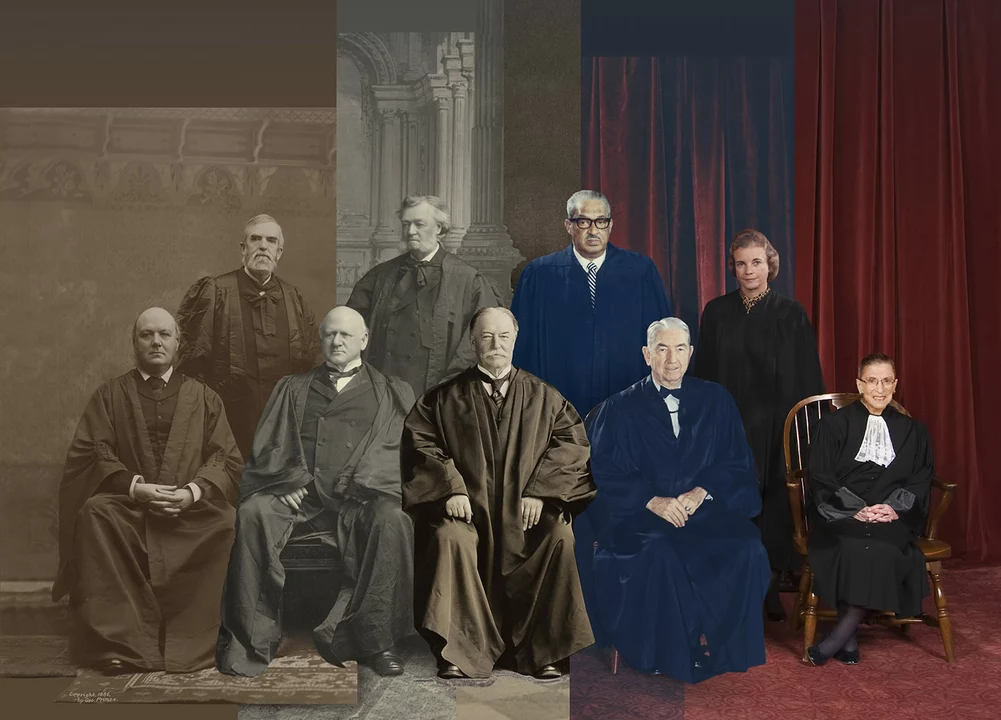The Growing Concern over Judicial Appointment Processes
As an avid follower of the Supreme Court of India, I have noticed a growing concern among the public about the processes involved in the appointment of judges. The Supreme Court of India has the highest authority in the country, and its judgments affect the lives of millions of people. Therefore, it is vital that the appointment process is transparent and ensures that only the most qualified candidates are appointed to the bench.
However, in recent times, the opaqueness of the appointment process has come under scrutiny. The current method of appointment, known as the "collegium system," has been criticized for its lack of transparency and accountability. This system involves a group of senior judges recommending candidates for appointment, but there is very little information available on the selection criteria or the reasons behind the recommendations.
Furthermore, the government has tried to introduce the National Judicial Appointments Commission (NJAC) in an attempt to bring more transparency to the process. However, the Supreme Court struck it down, citing concerns over its constitutionality and the potential for government interference in the judiciary. This has left the public feeling frustrated and questioning the integrity of the appointment process.
Concerns about Judicial Backlog and Delayed Justice
The Supreme Court of India is currently burdened with a massive backlog of cases, leading to delays in the delivery of justice. This backlog has been growing steadily over the years, and it is now estimated that there are more than 60,000 pending cases before the Supreme Court. This is a major cause of concern for the citizens of India, as delayed justice often results in a denial of justice.
One of the major reasons for this backlog is the shortage of judges. The current sanctioned strength of the Supreme Court is 34 judges, but there are often multiple vacancies. This puts immense pressure on the existing judges, who are forced to work long hours and handle a large number of cases.
Apart from the shortage of judges, the procedural complexities and the lack of infrastructure also contribute to the increasing backlog. The Supreme Court has taken several measures to address the issue, such as introducing fast-track courts and video-conferencing facilities. However, these measures have not been sufficient to tackle the problem, and a more comprehensive solution is required.
Increasing Political Intervention in the Judiciary
Another issue that has come to light in recent times is the increasing political intervention in the judicial system. The independence of the judiciary is a cornerstone of the Indian Constitution, and any interference by the executive or legislative branches can undermine this independence.
However, instances of political pressure on the judiciary have been reported in the media, raising concerns about the impartiality of the courts. These instances include alleged interference in the appointment of judges, attempts to influence judgments, and even threats to judges who deliver unfavorable verdicts. This has led to a growing distrust among the public in the judiciary, which is detrimental to the functioning of a robust democracy.
The Supreme Court has tried to maintain its independence and has asserted its authority in various cases. However, it is crucial for all stakeholders, including the government and the citizens, to ensure that the judiciary remains free from political influence and continues to function as an impartial institution.
Supreme Court's Role in Upholding Fundamental Rights
One of the most important roles of the Supreme Court is to safeguard and uphold the fundamental rights of the citizens of India. These rights, enshrined in the Constitution, are essential for the functioning of a democratic society and are meant to protect the dignity and freedom of every individual.
In recent times, the Supreme Court has been at the forefront of upholding these rights through various landmark judgments. These include the decriminalization of homosexuality, the right to privacy, and the striking down of the controversial "triple talaq" practice. These judgments have been hailed as progressive and have strengthened the faith of the people in the judiciary.
However, there have also been instances where the court's decisions have been criticized for infringing upon the fundamental rights of citizens. For instance, the recent judgment on the issue of internet restrictions in Jammu and Kashmir has been criticized for not adequately protecting the right to freedom of speech and expression. This highlights the need for the Supreme Court to be more vigilant in upholding the fundamental rights of the citizens and ensuring that they are not compromised in any way.
The Need for Greater Transparency and Accountability
Lastly, the growing concern about the functioning of the Supreme Court has highlighted the need for greater transparency and accountability in the judiciary. This includes not only the appointment process but also the functioning of the court itself. The public has the right to know how the highest court in the country operates and how its decisions are made.
Various measures can be taken to increase transparency, such as live-streaming court proceedings, making judgments and orders easily accessible, and providing more information about the functioning of the court. These measures would not only help improve public trust in the judiciary but also help educate citizens about the important role the Supreme Court plays in our democracy.
In conclusion, the Supreme Court of India is facing several challenges in the present day, ranging from judicial appointments to the backlog of cases. As the highest authority in the country, it is crucial for the court to address these issues and ensure that it remains an independent and impartial institution. By increasing transparency, accountability, and vigilance in upholding the fundamental rights of citizens, the Supreme Court can continue to play its crucial role in the Indian democracy.
